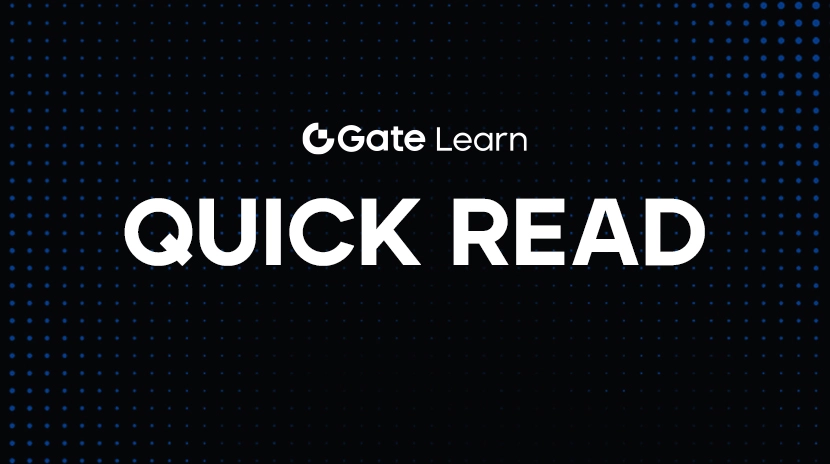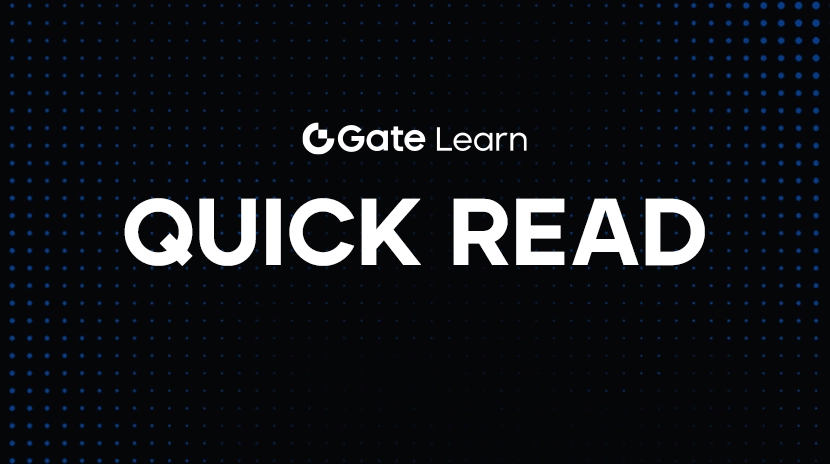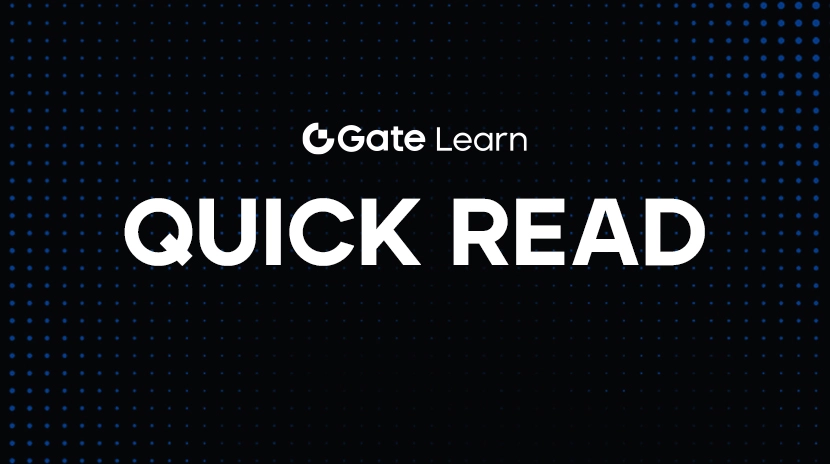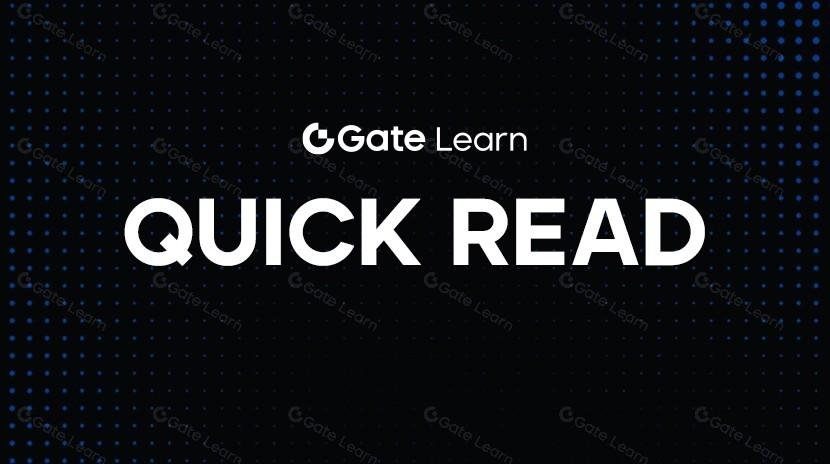اقرأ كل شيء عن بوليماركت في مقال واحد
أصل وتطوير بوليماركت
في ظل موجة التكنولوجيا اللامركزية المتزايدة، تبرز بوليماركت كمنصة تنبؤ لامركزية، إعادة تعريف فهم الجمهور لأسواق التنبؤ. مبنية على تكنولوجيا البلوكشين، تهدف إلى خلق نظام تنبؤ شفاف وعادل وفعال دون الحاجة إلى وسطاء موثوقين. على عكس الأسواق التقليدية للتنبؤ، تستخدم بوليماركت العقود الذكية لتنفيذ التداولات والتسويات تلقائيًا، مما يقضي على مخاطر الثقة والعتمة التشغيلية المرتبطة بالمؤسسات المركزية.

صورة المصدر:https://x.com/Polymarket
تأسست Polymarket في عام 2020 من قبل شاين كوبلان ، وهو طالب سابق في علوم الكمبيوتر في جامعة نيويورك ترك الدراسة لمتابعة ريادة الأعمال. كان أيضا من أوائل أتباع Ethereum وتم اعتقاله في Chronicled في منطقة خليج سان فرانسيسكو في يونيو 2016. في ذلك الوقت ، كان هناك طلب قوي في السوق على التنبؤ بالأحداث المستقبلية ، لكن طرق التنبؤ التقليدية واجهت العديد من القيود مثل الافتقار إلى الشفافية وعدم الكفاءة والاعتماد على المؤسسات المركزية. مستوحاة من ورقة فريدريك هايك الشهيرة "استخدام المعرفة في المجتمع" ، تصور كوبلان نموذجا مبتكرا لمساعدة الجمهور على فهم ديناميكيات العالم الحقيقي بشكل أفضل. وهكذا ، ولد بوليماركت. بنيت على blockchain ، وتهدف إلى إنشاء منصة تنبؤ لامركزية وشفافة وفعالة حيث يمكن للمستخدمين المراهنة على نتائج الأحداث المستقبلية المختلفة ، ودمج الذكاء الجماعي للجمهور في التنبؤات.
بعد إطلاق المشروع في عام 2020، أطلقت بوليماركت بسرعة نسخة تجريبية سمحت للمستخدمين بالتداول في مواضيع مختلفة. خلال هذا الوقت، أكملت جولة بذرية بقيمة 4 ملايين دولار بقيادة بوليتشين كابيتال ونافال رافيكانت، مع مشاركة من 1confirmation، ParaFi، المدير التنفيذي السابق لـ Coinbase بالاجي سرينيفاسان، مؤسس Aave ستاني كوليتشوف وغيرهم، مما قدم دعمًا ماليًا للتطوير الأولي والعمليات للمنصة.
خلال الانتخابات الرئاسية الأمريكية عام 2020، شهد Polymarket نموًا انفجاريًا أوليًا حيث توافد أعداد كبيرة من المستخدمين الذين يتطلعون للرهان على نتيجة الانتخابات إلى المنصة. تزايدت قاعدة مستخدميها وحجم التداول بسرعة. ومع ذلك، في عام 2021، فحصت لجنة تداول السلع الآجلة (CFTC) Polymarket لتقديم خيارات ثنائية غير مرخصة، مما يشكل تحديًا تنظيميًا هامًا. ردًا على ذلك، تعاملت Polymarket بنشاط مع الجهات التنظيمية وتوصلت إلى تسوية مع CFTC في عام 2022، موافقة على دفع غرامة قدرها 1.4 مليون دولار ووقف الأسواق غير المتوافقة.
في عام 2022، قام بوليماركت بعدة حركات استراتيجية هامة. في شهر مايو، عينت السلطة السابقة للتجارة الآجلة لجنة الإرشاد ج. كريستوفر جيانكارلو كرئيس لمجلسها الاستشاري، استفادة من الخبرة التنظيمية لتوجيه النظام نحو تطوير متوافق. في نفس العام، أكملت بوليماركت جولة تمويل سلسلة A بقيمة 25 مليون دولار بقيادة بوليتشين كابيتال وجو جيبيا، لدعم توسيع أعمالها وتحسين تكنولوجيتها ضمن إطار متوافق.
بحلول عام 2024 ، دخلت Polymarket مرحلة من النمو السريع. خلال الانتخابات الرئاسية الأمريكية في ذلك العام ، تميزت بتوقعاتها الدقيقة ، لتصبح واحدة من أوائل المنصات التي تنبأت بفوز ترامب وعززت شعبيتها بشكل كبير. وفقا لمنصة تحليلات blockchain Dune Analytics ، ارتفع مستخدمو التداول النشطون شهريا من 13,000 في مايو 2024 إلى 220,000 في أكتوبر ، مع حجم تداول شهري يقترب من 2 مليار دولار. في مايو ، أكملت المنصة جولة من السلسلة B بقيمة 45 مليون دولار بقيادة Founders Fund ، بدعم مستمر من 1confirmation و ParaFi ، ومشاركة من المؤسس المشارك ل Ethereum Vitalik Buterin و Dragonfly والمؤسس المشارك ل Eventbrite كيفن هارتز. سلط هذا التمويل الكبير الضوء على ثقة المستثمرين القوية في آفاق Polymarket ووفر رأس مال وافر للابتكارات المستقبلية وتوسيع السوق. بحلول أكتوبر ، وصل المتداولون النشطون يوميا للمنصة إلى مستوى قياسي يزيد عن 30,000 ، مما عزز Polymarket كأكبر سوق تنبؤ لامركزي في العالم.
اعتبارًا من 24 سبتمبر 2024 ، ذكرت The Information أن Polymarket كانت تفاوض جولة تمويل جديدة تتجاوز 50 مليون دولار وتنظر في إصدار رمز محتمل. سيحصل المستثمرون في هذه الجولة على شهادات حقوق الشراء للرموز ، مما يمنحهم حقوق شراء الرموز إذا تم إصدارها. ومع ذلك ، لم تتخذ Polymarket قرارًا نهائيًا ، ولم يتم الإعلان عن جدول زمني لإصدار الرموز.
سيناريوهات تطبيق بوليماركت
(1) إنشاء والمشاركة في أسواق التنبؤ
يستمتع المستخدمون على بوليماركت بدرجة عالية من الحكمة الذاتية ويمكنهم إنشاء أسواق تنبؤية استنادًا إلى الأحداث أو المواضيع ذات الاهتمام الشخصي. من خلال تحديد قواعد السوق وأسئلة التنبؤ والإطارات الزمنية، يمكن لأي شخص إطلاق سوق تنبؤية جديدة. يمكن للمستخدمين الآخرين بعد ذلك الانضمام بحرية إلى الأسواق ذات الاهتمام، شراء أو بيع رموز التنبؤ للتعبير عن آرائهم في نتائج الأحداث. هذآ الآلية المرنة تحفز إبداع المستخدم وحماسه، مما يثري ويتنوع في العروض التنبؤية للمنصة.
عملية الإنشاء بسيطة. يقوم المستخدمون بتعريف معلمات رئيسية مثل سؤال التنبؤ، وتوفير خيارات ثنائية مثل "نعم" أو "لا"، وتحديد تواريخ بداية ونهاية السوق لإطلاق سوق تنبؤ جديدة.

مصدر الصورة:https://polymarket.com/
(2) الاستثمار وإدارة المخاطر
يقدم بوليماركت فرص جديدة للمستثمرين. من خلال تحليل اتجاهات السوق والاحتمالات، يمكن للمستثمرين إجراء استثمارات ذات مخاطر منخفضة نسبيًا. على سبيل المثال، في سوق الانتخابات السياسية، إذا كان المستثمر يعتقد أن لدى مرشح معين احتمالية عالية في الفوز، فيمكنه شراء الرمز التنبؤي المقابل مسبقًا والربح بعد تأكيد النتيجة. يمكن للمستخدمين أيضًا تنويع الاستثمارات عن طريق الاحتفاظ بعدة رموز تنبؤية لنشر المخاطر وتحسين المحافظ.
المنصة تستخدم حاليًا USDC كوسيط رئيسي لعمليات الدفع والرهان. كل التجارات ومكافآت السيولة تُسوى أيضًا بـ USDC.
لضمان سيولة كافية لتداول سلس، يستخدم Polymarket عقود صانع السوق الآلي المتقدمة. ينشئ صانعو السوق الآليون مجموعات سيولة تقوم تلقائيًا بتسعير وتنفيذ المعاملات، مما يسمح للمستخدمين بالتداول حتى بدون طرف معاكس مباشر. تعدل الأسعار في حوض السيولة استنادًا إلى الطلب السوقي، مما يحافظ على تداول سلس. مع تطور المنصة، تخطط Polymarket للانتقال من نموذج صانع السوق الآلي إلى نظام كتاب الطلبات، حيث يمكن للمستخدمين تحديد أسعار الشراء/البيع بدقة. سيعزز هذا المزيد من مرونة السوق والعمق، مقدمًا المزيد من خيارات التداول المتنوعة لتلبية احتياجات المستخدمين المختلفة.
(3) الحصول على المعلومات والرؤى الاتجاهية
بالإضافة إلى الاستثمار، يعمل Polymarket كمنصة معلومات قيمة. تعكس أسواق التنبؤ الخاصة به توقعات واحتكامات المشاركين العالميين، مما يوفر رؤى مفيدة للشركات والباحثين والأفراد. على سبيل المثال، يمكن للشركات تحليل توقعات السوق لإطلاق منتجات جديدة لقياس الطلب والردود من المستهلكين، بينما يمكن للباحثين استخدام البيانات للدراسات في العلوم الاجتماعية والاقتصادية ومجالات أخرى.
الأسس التقنية لـ Polymarket
(1) البنية التحتية لسلسلة الكتل
بوليماركت مبني على سلسلة الكتل الخاصة بإثريوم، مستغلًا بالكامل قدرات عقوده الذكية. يضمن دفتر الأستاذ اللامركزي لإثريوم أن جميع عمليات سوق التنبؤ علنية شفافة وغير قابلة للتغيير. يمكن تتبع والتحقق من كل صفقة وتدفق للأموال وتسوية نهائية من قبل المشاركين، مما يعزز مصداقية السوق ويقلل من تكاليف الثقة.
(2) آلية العقد الذكي
العقود الذكية هي واحدة من التقنيات الأساسية لـ Polymarket. يولد كل سوق تنبؤ عقد ذكي مقابل يحدد مسبقا القواعد - بما في ذلك وقت البدء / الانتهاء، وطرق حل النتائج، وإدارة / توزيع الأموال. بمجرد تأكيد النتيجة، ينفذ العقد الذكي تلقائيا التسويات، مكافأة المستخدمين الذين تنبأوا بشكل صحيح بدون الحاجة لتدخل يدوي، مضمونا المعاملات الفعالة والعادلة.
(3) البوابة المفتوحة المركزية
لتحديد نتائج الأحداث بدقة، يدمج Polymarket المهمات المنظمة. تقوم هذه المهمات بجمع المعلومات من مصادر بيانات مستقلة وموثوقة متعددة مثل وسائط الإعلام الرسمية ومنصات الإحصاءات الرسمية. من خلال خوارزميات معقدة وآليات الاتفاق، تقوم المهمات بتحقق وتأكيد البيانات قبل تغذية النتائج إلى العقود الذكية. يضمن هذا العملية تسوية الأسواق بناءً على معلومات دقيقة وموضوعية، مما يمنع النزاعات ويحافظ على العدالة والنزاهة.
النظرة المستقبلية لبوليماركت
مع استمرار تطور تكنولوجيا البلوكشين وتحولها إلى التوجه الرئيسي، فإن الأسواق التنبؤية اللامركزية مستعدة للحصول على اعتراف أوسع واستخدام أكبر. من الناحية التقنية، قد تستكشف Polymarket التوافق مع سلاسل كتلية أخرى لتعزيز السرعة وتقليل الرسوم. من الناحية التطبيقية، يمكن أن توسع أسواق التنبؤ في قطاعات مثل التأمين والألعاب وإدارة سلسلة التوريد، مقدمة حلول التنبؤ الخاصة بالصناعة. ومع ذلك، نظرًا لأن الأسواق التنبؤية تتضمن معاملات مالية، فإنها تواجه بيئات تنظيمية معقدة في مناطق مختلفة على مستوى العالم.
المقالات ذات الصلة

كيفية كسب USDT: أفضل الطرق لزيادة مقتنياتك من العملات الرقمية

ما هي عملة إيلون الرسمية (ELON)؟

أفضل تطبيق للتعدين في مجال العملات الرقمية

تحليل قيمة عملة Pi: الآفاق المستقبلية لعملة Pi في سوق العملات الرقمية

كم يمكن أن يرتفع XRP؟ كيف سيؤثر سياسة العملات المشفرة لترامب على الاتجاه المستقبلي لـ XRP؟



